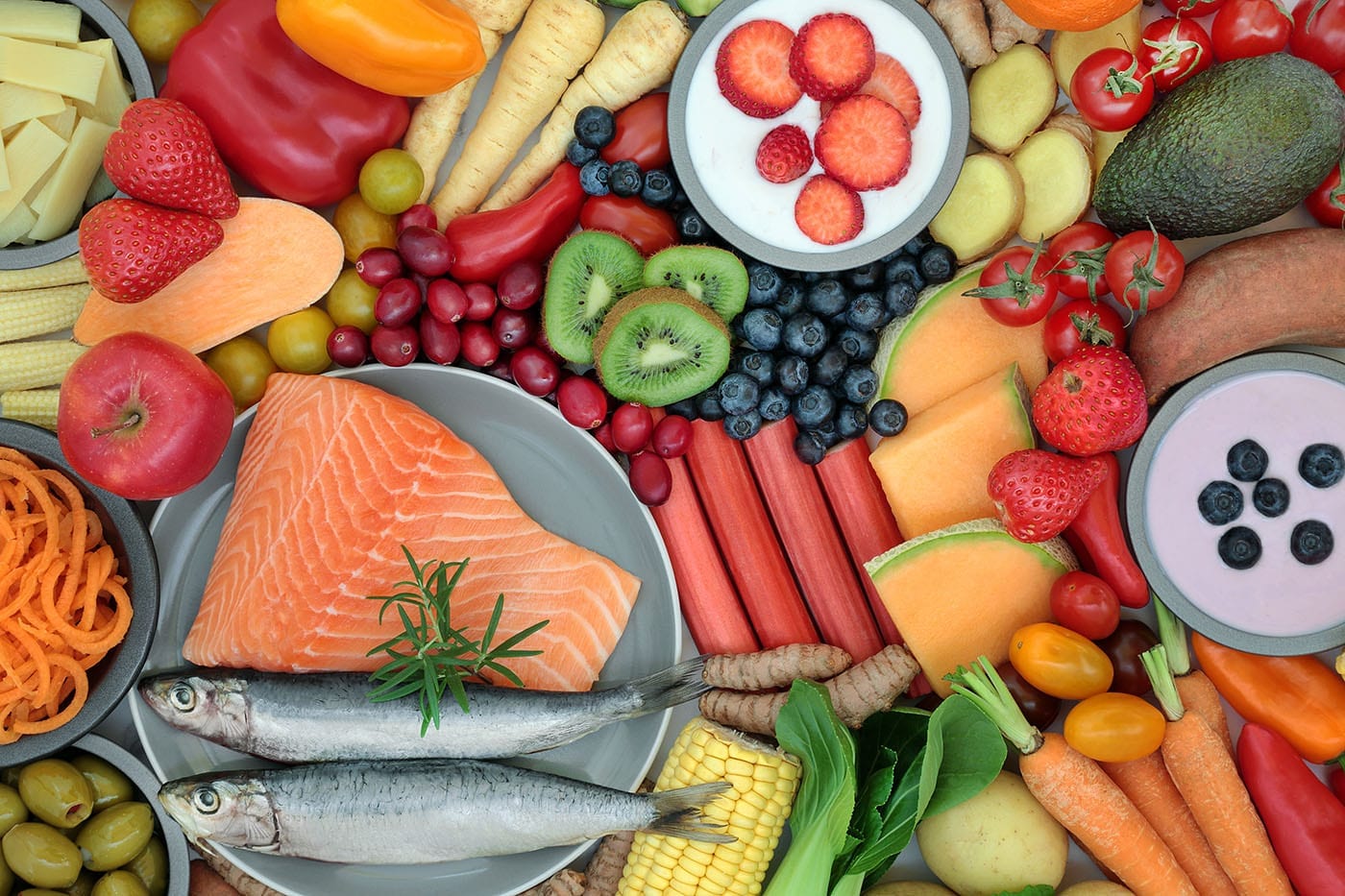How watching what you eat can make your bowels a little less irritable
by Ginger Bailey, Registered Dietitian/Nutritionist
If you have been diagnosed with Irritable Bowel Syndrome (IBS) you know how troublesome, and sometimes debilitating, the symptoms can be. IBS can be difficult to diagnose since symptoms may present differently from person to person. Some may have diarrhea while others struggle more with constipation. For others, nausea and bloating are more severe.
The good news is that better dietary management can often reduce symptoms and improve quality of life. Finding what works for you can be tricky as dietary management varies based on each person and their symptoms. However, there are a few general recommendations that can be helpful.
- Keep a food/symptom log. This is the best way to find out which foods trigger your symptoms and which help alleviate them. Because people often don’t eat one food at a time, it can be difficult to pinpoint if there is a particular food that seems to cause issues for you. Make notes about any symptoms that appear within an hour of eating. Over the course of time, it will become easier to find correlations.Also, if your symptoms ever flare up, make note about other things happening at the time. Are you feeling more stress than usual? Did you just have a difficult conversation with someone? Did your schedule change suddenly and unexpectedly? Did you go to a new place? Keeping a log will help you learn more about how your body operates, and by extension, how you can best take care of it.
- Limit the amount of processed foods and artificial ingredients you eat. The human body does not deal well with artificial sugars, fats, colors, etc. These foods may also have a negative impact on the microflora of your gut. The balance of bacteria in your GI tract is very important! Eating a lot of processed foods can disrupt that balance and worsen GI issues, in addition to being generally detrimental to your system. Instead, look for foods with ingredients you recognize. You can never go wrong with fresh fruits and vegetables, and whole, unprocessed foods.
- Learn what activities help you discharge your stress. While the demands of daily life mean it’s often not possible to eliminate, or even decrease, your stress, there are ways to better manage it. There are ways of discharging stress and other negative feelings.Why is this important? Your gut has tons of nerves in it! Research has found that stress can wreak havoc on the nerves. If we don’t let go of our “emotional baggage that built-up tension can affect the nerves in your GI tract.
Enjoyable activities like exercise, meditation, reading, gardening, hobbies, art, and listening to music are all great ways to help dissipate pent-up energy and frustration.
To manage specific symptoms, try these suggestions:
Constipation
Constipation means stool moves too slowly through the large intestine, resulting in hard, painful bowel movements. To avoid this:
- Get adequate amounts of fluid and fiber
- Avoid excessive starches (bread, pasta, baked goods)
- Talk to with your gastroenterology specialist about probiotics
- Eat plenty of fruits and vegetables
- Keep a food/symptom diary to log your body’s reaction to different foods.
You can also talk with your gastroenterology specialist about taking probiotics. These can be helpful for maintaining a good balance of healthy bacteria in your intestines. Eating plenty of fiber also helps provide more bulk to help your colon move food along more consistently, but always increase fiber intake gradually. Increased fluid intake is necessary when increasing fiber intake to prevent worsening constipation.
Diarrhea
People with diarrhea have the opposite problem of those with constipation – their stool is moving too quickly. In this case, starchy foods and foods high in soluble fiber tend to help bind extra fluid. For example, oatmeal has quite a bit of soluble fiber. Adding a soluble fiber supplement, like Benefiber®, may also be useful, but as with any fiber, add it to your diet gradually!
Gas
Some foods naturally produce more gas, but the situation is worsened for those with IBS. These foods may include beans, lentils, potatoes, eggs, asparagus, broccoli, Brussels sprouts, cabbage, onions, garlic, lactose (found in milk), soft drinks, artificial sweeteners, and some whole grains. Many of these foods are good for you in other ways, though, so you shouldn’t eliminate them from your diet entirely. Instead, practice moderation and note in your food log if a specific food is giving you trouble.
Wheat can be a common trigger for symptoms. It may be worth eliminating wheat for a period to see if it improves symptoms. Also, suddenly increasing your fiber intake will tend to cause more gas and GI distress. Consuming excess amounts of insoluble fiber in particular can also do this.
Again, gas isn’t an excuse to not eat your vegetables! Just try to avoid eating a lot of gas-producing foods together in one day if you are already struggling excess gas.
Nausea
Personally, this is usually my first indicator that something I ate didn’t agree with me. It typically starts before any of the other symptoms. So, I will immediately make note of anything I ate at that particular meal or snack. (Once again, keep a food/symptom log. It really is a powerful tool!)
If you experience nausea, ginger and mint are both excellent natural remedies. Ginger or mint tea – hot or cold – can also work. There are also ginger mints you can buy from many grocery stores that are helpful for nausea. Fresh ginger also adds a great flavor to meals.
Summary
As a dietitian, I have personally struggled with IBS and I know how challenging it can be. That said, because I listened to my body, I have found ways to keep my symptoms manageable and I feel good most of the time. I have found through my own personal experience, as well as that of my clients, that the most important thing is to listen to the cues your body gives you. Our body knows what it needs – we just don’t always pay attention. Do your best to create a positive environment surrounding eating. When people struggle with GI issues, food often becomes something they don’t even want to think about anymore. If your brain creates negative associations with food, it can make the situation worse. Try to make the experience of eating as positive as possible. Eat with family, listen to uplifting music while you eat, or even eat at a favorite location. Anything you can do to make eating a positive experience can be helpful. After all, good food is truly one of life’s greatest pleasures!
Think of it this way. Imagine it’s a Monday, and all day long you find yourself having to deal with things you’d rather not deal with. You get stuck in traffic, your desk piles up at work, the weather’s awful, and when you get home, you see that no one bothered to clean up the kitchen. You’d probably feel pretty irritable, wouldn’t you?
Your body works the same way. When we subject our GI tract to unhealthy food – or food our body simply doesn’t tolerate well – it reacts exactly the same way we do: It gets irritable. By following the steps above, you can make your gut a lot happier, making you a lot happier in the process.


